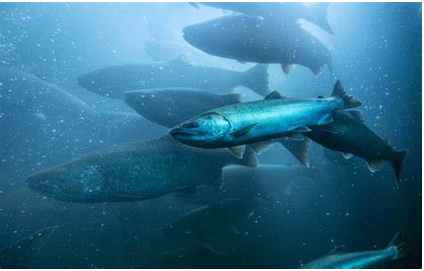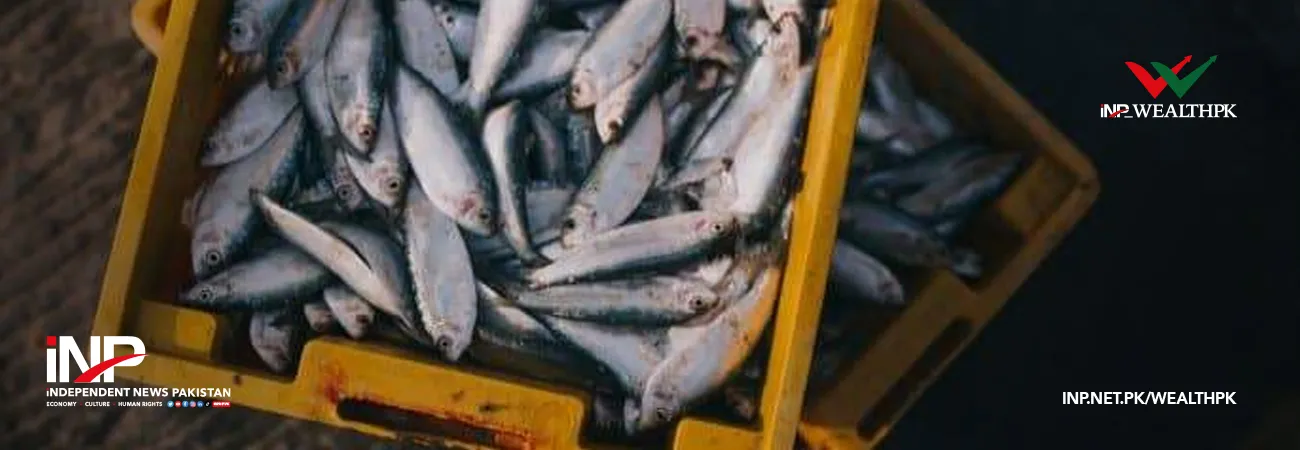INP-WealthPk
Azeem Ahmed Khan
Pakistan’s fisheries sector is grappling with a range of serious challenges needing urgent attention, Dr Urfa Bin Tahir, Assistant Professor at Parasitology Department of Faisalabad Agriculture University, told WealthPK.

Although the country has a wealth of natural water resources such as rivers, lakes, and dams, the fisheries sector remains underdeveloped and unable to reach its full potential in contributing to food security and employment, he said. Urfa emphasized that Pakistan’s fish farming, though one of the world’s fastest-growing industries, is beset by technical, financial, and administrative issues.
Without decisive intervention, these challenges will continue to hinder the industry's ability to contribute to the national economy, he added. “Most Pakistani fishermen rely on outdated fishing techniques due to the lack of access to modern training and equipment, resulting in low yields. Absence of proper education on fish health and disease management further reduces the quality and quantity of fish production,” he observed.
Dr. Urfa, who is also Focal Person of BS Fisheries and Aquaculture Program, and Head of Aquatic Parasitology Research Group, recommended that the government should launch dedicated training programs focused on modern aquaculture techniques, disease prevention, and efficient fish farming practices. He also urged collaboration with research institutions to enhance fish health and nutrition.
He stressed the importance of establishing fisheries training centers in various regions to provide accessible technical education at the grassroots level. According to Dr Urfa, financial limitations are another major hurdle, especially for small-scale fishermen, who cannot afford modern tools or quality fish feed. To address this, he proposed that the government introduce low-interest loan schemes to help fishermen invest in necessary equipment.
Financial support from international donors could also be sought to expand the industry; moreover, subsidies on essential equipment and fish feed could attract more investors to the sector, he added. Climate change and water pollution pose further threats, Dr. Urfa noted. Rising temperatures and contaminated water sources have adverse effects on fish reproduction and increase disease prevalence. He called for stringent environmental regulations to curb industrial waste and suggested the farming of climate-resilient fish species.
He also recommended government-led initiatives to clean the water bodies. A major concern is the absence of consistent government policies supporting the fisheries sector, Dr Urfa said. Lack of a unified strategy is seen as a barrier to sustainable development. He advocated formulation of a comprehensive national fisheries policy encompassing financial incentives, subsidies, and technical assistance, alongside structural improvements.
Dr Urfa said currently, most of Pakistan’s fish products are sold domestically, limiting their international market reach. He proposed the launch of export promotion schemes and modernizing fish storage and transportation systems to maintain quality. He also emphasized the need to brand and market Pakistani fish products globally. The sector’s growth is further hindered by limited research and development (R&D) facilities, he noted.
To advance fisheries science and production standards, he suggested establishing specialized R&D centers in the universities and promoting collaboration with international research bodies. Hosting scientific seminars would also help disseminate new technologies and methods, he said.
Shortage of trained professionals in the sector is another concern, Dr Urfa said, urging the government to introduce fisheries-related degree programs at the university level and enhance training opportunities. Strengthening communication between fisheries experts and local fishermen would also foster growth and innovation in the industry, he added.
Credit: INP-WealthPk













